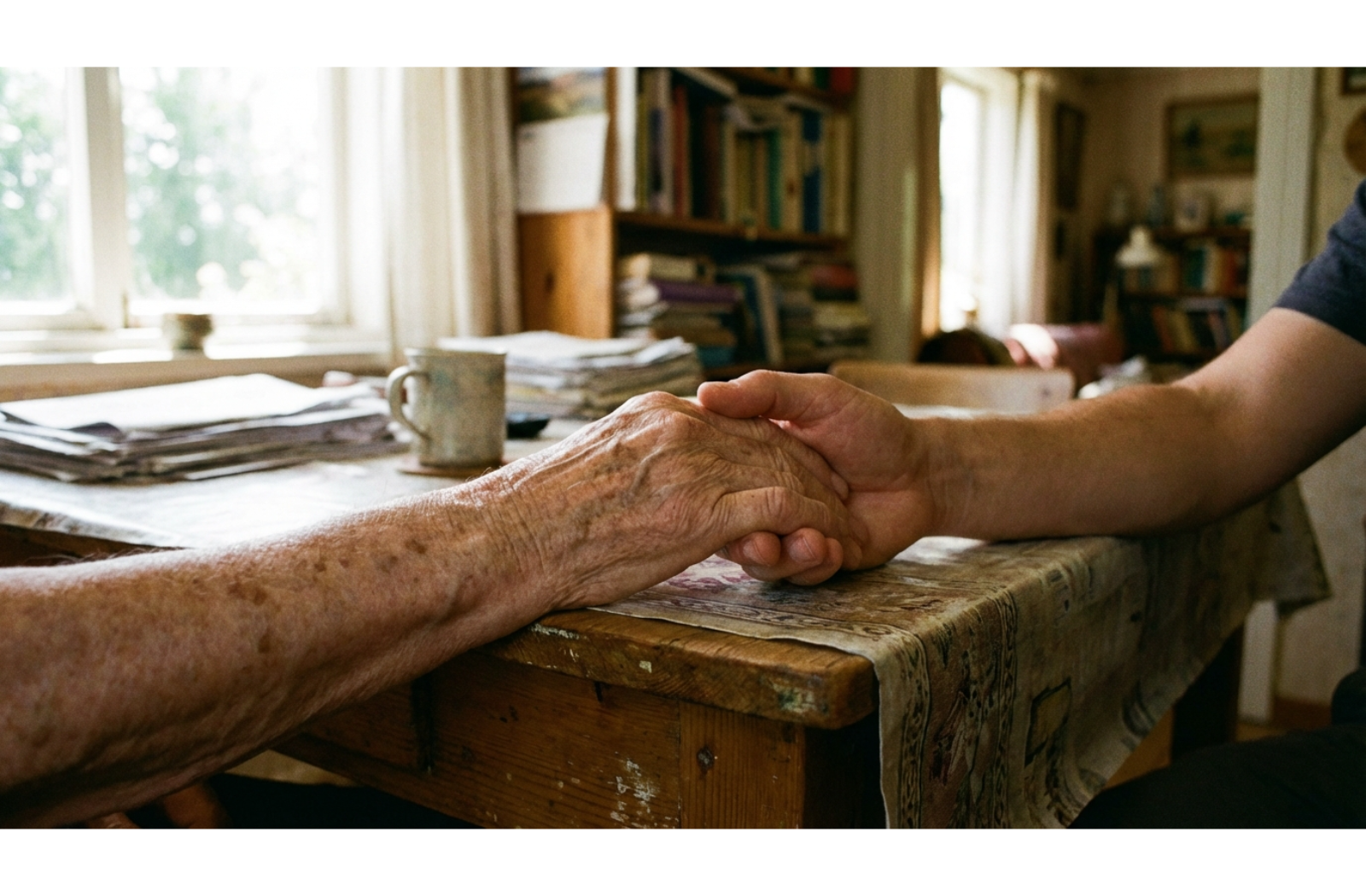How Assisted Living Supports Residents with Early Memory Loss
- Posted on
- By Mira Vie Senior Living

Memory loss can be a difficult challenge. Over time, it can disrupt most parts of your loved one’s life—and affect everyone involved. However, if you have a loved one living with mild memory loss, there is good news—assisted living may be able to help.
Assisted living supports residents with early memory loss through:
- Personalized care plans
- Safe and supportive living environments
- Cognitive stimulation
- Emotional and social support networks
- Professional healthcare services
However, there may be a point where memory loss becomes too serious for assisted living. If your loved one’s cognitive condition is affecting their everyday life or posing a risk to their well-being, it may be time for a move to memory care.
Personalized Care Plans
The commitment to personalization is the heart of assisted living. Because every resident is unique, their care should be too.
When your loved one moves to assisted living, one of the first steps involved is creating a personal care plan. These plans outline your loved one’s abilities, needs, and preferences so they always have access to what they need.
What’s Included in Assisted Living?
Often, care plans in assisted living include:
- Assistance with daily activities such as bathing, dressing, and grooming
- Medication management
- Meal preferences and dietary restrictions
- Mobility or transportation support
- Engaging in preferred hobbies and activities
These can be invaluable when memory loss is involved. They bring convenience and predictability to your loved one’s day so life can be consistent.
Safe & Supportive Living Environments
Assisted living is all about helping older adults preserve their independence. That’s why they’re thoughtfully designed to reduce confusion and create secure spaces for residents.
With features like simple layouts, quick response times, emergency systems, and more, safety is an essential focus in assisted living. When your loved one needs support, a team of professional caregivers steps in to help.
When memory loss is a factor, these features are incredibly helpful. They foster a balance between freedom and safety, so when a challenge arises, your loved one always has access to the care they need.
Cognitive Stimulation
Staying mentally engaged plays a key role in slowing memory decline. That’s why assisted living communities offer a range of activities and programs, many targeted at stimulating the mind.
Some common activities and experiences include:
- Trivia games
- Puzzle-solving
- Art and craft workshops
- Book clubs
- Music therapy sessions
These programs are designed to foster engagement and connection while bringing joy and entertainment to daily life. These opportunities can make all the difference for older adults living with memory loss.
Emotional & Social Support Networks
Social interactions aren’t just about chats, having friends, and spending time with others. It’s closely linked to a stronger and healthier mind. However, many older adults find themselves living with loneliness—it’s a significant problem causing plenty of negative health effects.
A strong emotional and support network can make a big difference, though. Assisted living communities provide the perfect environment for seniors to create new friendships and expand existing ones. Families are also encouraged to regularly visit and participate in the community events.
Meanwhile, there are plenty of support programs designed to promote socialization. Between the different classes, programs, activities, and outings, your loved one can spend every day supported by love and support.

Professional Healthcare Services
Access to healthcare support is a significant benefit of assisted living. Residents can receive regular wellness checkups and healthcare appointments, which helps monitor their well-being. There are also therapy options to help maintain cognitive abilities.
This also means your loved one has access to emergency support at all times. If something goes wrong, they’ll be quickly supported by a team of experienced professionals. This restores peace of mind to your entire family, as you can rest easy knowing they’re in excellent hands.
What to Do if Memory Loss Worsens
Assisted living can be extremely rewarding. However, memory loss can be tricky. There may be a point where your loved one needs more support than assisted living can provide. If this is the case, memory care can be an excellent option.
Memory care is a specialized lifestyle tailored to the needs of people living with memory loss and cognitive challenges. It’s designed to support your loved one in a way that truly helps.
Signs It’s Time For A Move To Memory Care
So how can you tell if it’s time for memory care? When you’re near your loved one, watch for signs of everyday memory-related struggles. Some common signs include:
- Difficulty remembering names, dates, or important events
- Getting lost in familiar places
- Increased confusion or disorientation
- Trouble managing daily tasks, such as cooking or paying bills
- Frequent mood swings or personality changes
- Neglecting personal hygiene or household cleanliness
These can all be signals that the current arrangement is no longer enough. Fortunately, communities like ours can help your loved one transition to their new level of care. This can make the entire process significantly easier for your entire family.
Is It Time For Assisted Living?
Living with early memory loss can be hard, but the right support can make all the difference. That’s why our team at Mira Vie Senior Living iis so happy to help older adults in need.
We can provide your loved one with a compassionate, safe, and engaging environment tailored to your loved one’s unique needs! Contact our team today to schedule a visit, and come see firsthand what a difference our incredible team can make.
Related Articles

Understanding Various Types of Assisted Living Contracts
Key Takeaways Senior living communities offer several contract types, including those with large entrance payments